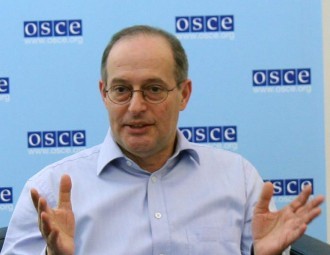Human rights activists met with the UN Special Rapporteur on Human Rights in Belarus

Consultations with Miklos Haraszti took place in Vilnius and lasted two days – on February 2 and 3.
The meeting of the representatives of the Belarusian human rights organizations with the UN Special Rapporteur on Human Rights in Belarus Miklos Haraszti took place on February 2-3 in Vilnius in the Human Rights House, informs spring96.org.
Haraszti couldn’t meet human rights defendants in Minsk as the Belarusian authorities do not recognize the mandate of the UN Special Rapporteur and don't let him visit Belarus.
According to Deputy Chairman of the Human Rights Center "Viasna" Valiantsin Stefanovich, the topics of the discussion included the situation with socio-political rights in the country and other issues related to human rights in Belarus.
Human rights activists have expressed concern about the lack of real progress on key problem areas of human rights in the country over the past 5 years.
Let us recall that this year, the Republic of Belarus must pass another procedure under the Universal Periodic Review (UPR). The second stage of the UPR is scheduled for May 2015. Belarus must submit the results of the previous recommendations on the situation of human rights that it has taken during the first phase.
On the eve of the review, Belarusian NGOs have sent their alternative report to the office of the High Commissioner for Human Rights.
According to the human rights fighters, the only positive fact during 2014 was the release of Ales Bialiatski from prison under the law "On Amnesty".
It is worth mentioning that in June the extension of the mandate of the Special Rapporteur on human rights in Belarus will be voted at the United Nations Human Rights Council.
-
03.01
-
07.10
-
22.09
-
17.08
-
12.08
-
30.09



























